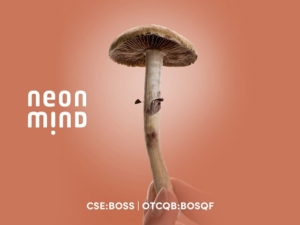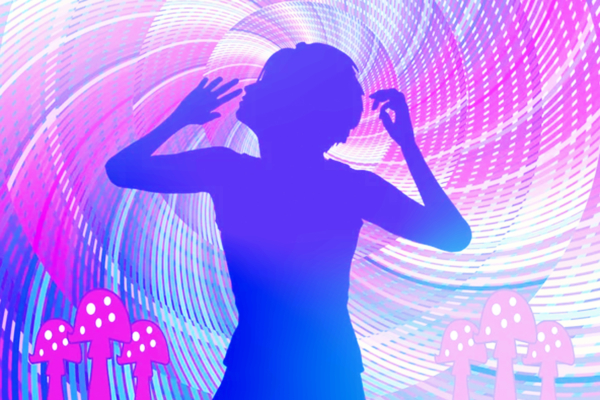
Last summer, I had my first psychedelic-assisted psychotherapy experience with MDMA. I worked with a licensed trauma therapist who I trusted and had worked with before. The experience itself was meaningful —we went deep into my trauma and rewrote parts of it, I cried and released shame, and I felt safe to explore all parts of myself. Sounds pretty ideal, right?
Wrong.
Since my experience, over a year has passed and I’ve come to realize that my therapist did a bad job on several fronts and ultimately caused me significant harm. In light of so many reports of guides (both above and below ground) causing harm, this topic has become quite popular and important among people working in the psychedelic field. Today I’m here to share some of my therapist’s mistakes and some of the red flags I ignored. Hopefully this will help spread awareness about what abuse/harm can look like, and will prevent others from repeating my experience with a bad psychedelic therapist.
Red Flag #1: Downplaying the importance of proper training and protocols
For anyone who doesn’t know, MAPS is a very well-known organization in the psychedelics space that among many things, trains therapists on providing MDMA assisted therapy and integration (we were working with MDMA). They’re pretty much the gold standard for how MDMA-assisted therapy is done. So when I asked my therapist whether he followed the MAPS MDMA therapy manual, he said it’s “over the top and has too many rules.”
When he said this, he essentially suggested that the standards put in place by one of the best organizations in the field aren’t necessary and that he didn’t think they were worth following. He didn’t provide any alternatives or speak to his own training either. When I heard him say all this, I should have asked for more clarification, but I didn’t —I trusted his judgment because he was my therapist.
Moving forward, if someone said something like that to me, I would ask for more clarification, and depending on their answer, I would be hesitant to work with them. The rules and protocols that MAPS and other organizations put in place for psychedelic therapy are there because they help ensure that the experience is safe for the participant and the provider. The MAPS manual was especially relevant here because we were working with MDMA.
Red Flag #2: Downplaying the risk of existing mental health issues
In the weeks before my experience, I’d been feeling really anxious, having little voices in my head at night before I fell asleep, and ultimately I was worried I was close to having a psychotic break or some kind of psychosis. I’d also had several experiences with MDMA that had left me feeling anxious and depleted the day after.
When I shared these concerns with my therapist the morning of our session, he looked me in the eyes and said with confidence, “they wouldn’t be giving this to people in clinical trials if it triggered psychosis” and that “when people use MDMA for healing, they don’t really have symptoms of a comedown.” He then suggested I go ahead with the experience. He basically assured me that I’d be totally fine. And once again, I trusted him and decided to do it, after he reassured me.
This ended up being a bad idea. MDMA can be very hard on the body, and I should not have gone into the experience with the amount of stress that my body was under, and with the overactive place my brain was in. The night of my experience, I woke up in the middle of the night from the feeling of an electric shock going through my entire body. I started having the worst panic attack of my entire life. I felt like someone was coming after me, I couldn’t sleep, and I felt highly paranoid. This was the most difficult situation I’ve ever faced in my entire life.
In the weeks and months following my experience, my paranoia was pretty consistent, I was sleeping terribly, and I felt anxious almost all of the time. Thoughts of my trauma were coming up several times per day and basically haunting me worse than they had been before my medicine session. It took me more than 8 months, along with discovering EEG-based neurofeedback before I was able to start feeling safe and normal in my body and re-establish a healthy mind-body connection.
So going back to what my therapist did, he basically encouraged me —a potentially unstable person who was expressing concerns of psychosis and dealing with severe mental health issues— to move forward with the therapy session, despite me expressing serious concerns immediately before our session.
If your therapist does this, they’re probably gaslighting you. People can have difficult experiences and psychological issues, including psychosis, during or after any type of psychedelic experience, regardless of whether or not there’s medicine involved. It is your guide or therapist’s job to help you listen to your inner voice, that inner healing intelligence that knows what you need. If you don’t feel comfortable moving forward with a session and your guide tells you to anyways, don’t do it!
Red Flag #3: Messiah complexes
You ready for this one? During the middle of our medicine session, my therapist told me a story about how he got his name, Adam. He told me that one time when he was high on MDMA, he heard a voice that said, “my name is Adam,” and he knew from that moment that his job was to be an MDMA therapist, and that he needed to change his name to Adam.
So why is this a red flag? In the moment, I was like, “oh that’s so cool!” and then after my experience, I was like, “oh wait, that was actually whack.” The problem with this is that the session was supposed to be about me and my own healing, and he thought I needed to hear this amazing story about him and how he thinks he’s been chosen to do this for people. Your therapist’s job is to support you, not to tell you questionable stories about themselves and why they’re special —especially if you don’t ask them for this information.
Red Flag #4: Giving insufficient and unsettling supplement advice
At the end of our medicine session, my therapist said, “Here’s some 5-HTP to take over the next few days.” He handed me a bag with some little clear pill capsules with white powder in them. People commonly take 5-HTP the day after their experience with MDMA to help balance their serotonin and prevent it from crashing. The issue was, when I asked what dose to take and how often, he said, “Oh I actually don’t know, you should go look it up when you get home.”
This was basically the last thing that he said to me before I left our session, and it was super unsettling. It didn’t leave me with a feeling of confidence about how I was going to go home and take care of my mental health when there was obvious risk involved in having a comedown after the session (which, referring back to #2, was definitely part of what happened).
He also didn’t give me any other advice around supplements to take in the days leading up to my experience (like the ones on sites like Rollsafe and Dancesafe) which could potentially have reduced the intensity of the drug on my body, and reduced the anxiety and paranoia I experienced following my session.
If your therapist doesn’t give you good advice about diet and supplementation for before and after your session (especially when you’re working with MDMA) that’s a red flag —they aren’t providing you proper care and knowledge that you need to reduce harm and take care of your body.
Red Flag #5: Not emphasizing the importance of integration support
The importance of integration can’t be emphasized enough —this is the process of reflecting on one’s experience and taking action to use it for personal growth and healing.
I had asked for discounted options because I didn’t feel that I was in a financially strong situation. My therapist told me that we could have a discounted medicine session if we just did one 30-minute integration call after the session.
For the vast majority of people, one integration session following a big psychedelic therapy experience is not enough. And for me, it especially wasn’t enough because I was in an intense paranoid and anxious state and I needed support. Thankfully I had a lot of different friends who I was able to call on and be open with about what I was experiencing, and they gave me good advice. However, sometimes people come out of psychedelic therapy and without the right support, they end up getting into very difficult places, and on rare, but real occasions, committing suicide.
The day after our session, I texted my therapist to let him know that I was experiencing a ton of anxiety and paranoia. He said he was sorry to hear about it and that we could talk in a few days. We had our single 30-minute integration call via phone call, and I was left to deal with my difficult and confusing situation.
Ideally, we would have had several integration sessions to help me work through what had happened. This didn’t happen, and could have been prevented if my therapist had emphasized the importance of ongoing integration.
Don’t do what I did
So that was my experience with a bad psychedelic therapist. If you are seeking psychedelic therapy and your therapist seems overly confident in the medicine or disinterested in your preparation or integration, those should be huge red flags. Hopefully reading this has been helpful for you. Part of my ongoing integration after this experience is to help create better access to support for people working with altered states. I’m doing part of this work through Bonfire, a personal growth community for people who use altered states of consciousness. Don’t do what I did and go it alone with a bad therapist, do whatever you have to do to find the support you need.
On November 6th we’re hosting a free online event about this topic: What happens when we experience harm in psychedelics, and what to do about it. You can learn more here.





